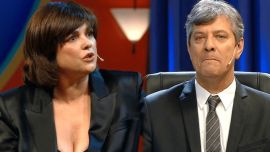Evo Morales resigned his post as Bolivia’s president last Sunday, under significant pressure from the country’s military and police forces and amidst weeks of nationwide protests. His re-election to a fourth term on October 20 triggered civil unrest after a suspicious delay in the release of the count led to rumours of fraud.
A team from the Organisation of American States subsequently audited the results. The OAS released its investigation findings Sunday in what would be the final strike against Morales, concluding there was election fraud. Morales promptly sought to remedy the issue by calling for another election, but his dissenters, including the Armed Forces, would not be quelled. Protests swelled and the military “suggested” he step down.
The days since have been marked by the ripple effect of these events throughout all of Latin America. Morales’ sizeable role in history is undeniable. As the first indigenous president in the region, he used nationalisation and protectionism to engineer economic growth, foster relative social stability and raise hundreds of thousands from poverty, albeit against a backdrop of alleged corruption.
His ouster deepens the ongoing region-wide fracture between the right and the left, the rich and the poor, open market versus interventionism. Latin American governments have picked sides and now must grapple with how to define and protect democracy in the region.
Ivan Briscoe, an experienced analyst and the programme director for Latin America and the Caribbean at the International Crisis Group, spoke to the Times about the current crisis in Bolivia and what happens next.
How did we get here?
Evo Morales was on a historic mission [...] Bolivia was mired in poverty, deeply divided, and extremely unstable. Morales changed that, and he did so in a way which was fairly economically responsible and tried to handle the inevitable social and political divisions in his country. As the first indigenous president, he represented a sea change in Bolivia’s internal politics in a way distinct from other left-wing leaders.
With that, though, came a lust for power. Economically, his administration was an outstanding success — huge decreases in poverty and steady growth rate. Politically, after he pacified discontent in 2008, he ensured there was no upsurge of a rival. Such achievement precipitated overconfidence and a sense of entitlement.
What should we know about the Organisation of American States report?
It’s shocking and alarming [...] Some people will say it’s biased, but this is compiled by three dozen technical experts in elections who I assure you will not be pressured into saying something they have not themselves researched.
The evidence in this report is a terrible indictment of a figure and of a government which could not handle the notion of losing power [...] It shows blatant electoral fraud. That’s why we saw a growth in public protest, unrest and the eventual push by the military for Morales to resign.
What’s worrisome now?
The sudden departure leaves behind a vacuum. Bolivia has effectively been a single party state for the last 14 years because Morales ran a very tight ship. He didn’t groom an alternative leader to replace him. He didn’t understand that his loss in the 2016 referendum to allow him to stand for re-election was a message from populists. But he also didn’t go down the path of other governments on the left in Latin America of effectively creating an unbreakable structure of military, political, and social power.
To an extent, his ouster arose because of his thirst for power coupled with the lack of ruthlessness accompanying that drive, which we’ve typically seen in other cases. In a way, that speaks well of him and shows how he represented and achieved deep historic change.
What’s going on with the ‘coup d’état’ debate?
Technically, it’s a coup. There was an interruption of a constitutional mandate and the military were deeply involved and remain so. There was a dubious assumption of power by the interim president.
While all of that is true, that picture fails to account for the gravely compromised legitimacy of Morales. First, his right to run again was achieved only by a court ruling packed with his sympathisers. Secondly, there’s the evidence of electoral fraud that effectively decimated any claim to legitimacy.
Ballot rigging is a dagger to the heart of democracy. Simply calling it a coup, which it technically is, and not recognising the deeper context in which it happened — violence, tensions, protests and police mutiny — is to cling a word with huge significance while ignoring a very complex and nuanced story.
What are the coalitions emerging for and against Morales?
Traditional divisions on the ground are between indigenous people and those of European descent, largely reflected between east and west. The bloc of indigenous people and middle class who had supported him for economic reasons has now fractured. Simple dividing lines are no longer in place [...]
The new government does seem to be harkening back in some symbolic ways to the old governing styles before Morales, and I think it’s going to be incredibly important for governability and peace in Bolivia that they don’t wipe the slate clean of everything Morales did. If that does happen you will start to see an indigenous mobilisation like what we saw in 2003 and 2005, which brought one president after another down and eventually led to Morales.
What will happen next?
I don’t have predictions, but I do have expectations. First, the transitional government needs to acknowledge that Bolivia is fundamentally different than it was before Morales and ensure it doesn’t reverse everything that was done. It will be two to three months of intense political activity ahead and we will start to see if we can have a smooth, orderly transition in which certain gains of the last 14 years are respected, or if there will be an attempt to basically excavate the politics of the past decade. The latter would be incredibly dangerous.
Because of the weakness of its institutions, Latin America doesn’t have neutral diplomatic arbitrators able to oversee the election. The OAS is regarded across the region as a biased actor. That’s a grave situation, when a formerly respected mediator can no longer do its job because not everyone trusts it. Latin American countries have chosen sides, so we can’t really expect any of them to moderate. We at the Crisis Group are asking the European Union to stand up and send a team to act as an honest broker and audit the election.



















Comments